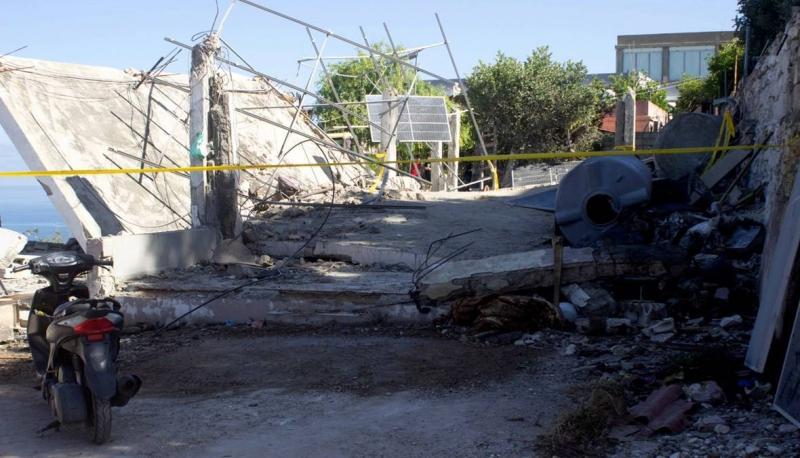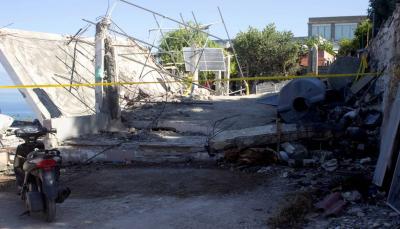The recent escalation in military operations between Israel and Hezbollah in southern Lebanon and northern Israel has taken on serious implications, especially as Israeli airstrikes have intensified significantly following revelations that Israeli Prime Minister Benjamin Netanyahu ordered the Israeli military to expand its strikes in Lebanon. The increased pace of Israeli raids and the corresponding development of Hezbollah's rocket fire suggest a qualitative change in the battlefield reality, indicating the most dangerous breach of rules of engagement since October 8. While many fear that this development could lead to a comprehensive war, past experiences over the past eight months have seen similar escalations without triggering a full-blown conflict.
Notably, the rise in military tension on the southern Lebanese front coincided with heightened activities related to the war in Gaza, particularly the plan announced by U.S. President Joe Biden on Friday, which garnered widespread support from various countries and initial approval from Hamas itself. While some observers doubt the success of this U.S. attempt at a historic breakthrough to end the Gaza war, similar pessimistic estimates apply to the military situation in southern Lebanon, where Israel has increasingly indicated preparations for a significant escalation that cannot be ignored, contrary to the assessments of most political forces and monitoring entities in Lebanon. Both France and the United States, along with other nations, have warned Lebanon about this possibility, continuing to do so as reported by "An-Nahar."
Yesterday was marked by intense military activity, described by Israeli media as a "day filled with sirens and rocket strikes in the north near the border with Lebanon." In recent hours, a new surprise occurred at the Lebanese border when Hezbollah targeted an Israeli drone, the "Hermes 900," which is among the most significant in the Israeli Air Force's arsenal and is remotely operated from the ground. The Israeli military confirmed this was the fourth drone downed by Hezbollah's missiles. Israeli media described the downing of the "Hermes" as an exceptional incident that demonstrates Hezbollah's capability to shoot down Air Force drones.
Hezbollah's operations were accompanied by a violent escalation of Israeli airstrikes, including phosphorus bombs that devastated what remained of the southern woodlands. Heavy Hezbollah rockets targeted a massive military base near Kiryat Shmona, prompting the Israeli army to issue multiple statements indicating that approximately 70% of Kiryat Shmona has been destroyed. According to information, the Hermes 900 that Hezbollah shot down still had one armed missile left, which the Lebanese army detonated. Meanwhile, a young Lebanese successfully retrieved the drone's wing before the area was bombed.
Israeli air force conducted violent strikes, including one on two friends in the Tyre district that resulted in seven injuries and left significant destruction. The air force also struck the town of Qantara, in addition to phosphorus shelling targeting the town of Khiyam. Telegram channels circulated images of children injured by shrapnel from the bombing on two friends. The Israeli army announced in the evening that it carried out over 40 strikes on the Lebanese border over the past 72 hours.
In domestic sentiments, Maronite Patriarch Cardinal Mar Bechara Boutros al-Rahi emphasized that "the boycott resulting from the lack of trust among Lebanese is the prevalent situation today, so no one dares to take the initiative to open a sincere national dialogue that can surpass all personal and factional interests, and no one sees the utility of responding to a call for dialogue that fails to genuinely tackle the core contentious points that have accumulated into ticking time bombs." At the conference "Renewing the Nation," titled "From Lebanon the Arena... to Lebanon the Nation," he questioned, "Is it not time for us to be true statesmen who consider only a free, prosperous Lebanon, the message and model for both the East and the West, and to promptly elect a president who leads a sincere national dialogue for Lebanon that restores trust and puts us back on the correct path for consolidating stability and rebuilding in all respects, notably political, financial, economic, judicial, and security?"
He added that "the brilliance of the Lebanese formula cannot be detached from the organization of political, security, and state stability in the rest of the Middle Eastern countries. The development of Lebanese society has been discordant; groups that were distant from the Lebanese idea are now defending it, while others that were close have distanced themselves. They have ignored it and joined different ideas unrelated to the Lebanese concept, making reconciliation between them impossible."
In turn, the Patriarch of Antioch and All the East for the Greek Catholic Melkites, Joseph Absi, remarked, "It may be better to abandon the sectarian system, which may be a dream for some or a demand for others, but until this dream and demand are realized, we must not yield to sectarian thinking that we believe leads to inevitable self-destruction sooner or later and must not instill it in our children's minds and hearts. Furthermore, the success of the Lebanese experience can only be completed by preserving it from both inside and outside. From the inside by strengthening unity and consensus, which has acquired a constitutional status under the National Accord Document, and from the outside by working to keep Lebanon away from conflicts." He asked, "Is it necessary to conclude by saying that electing a new president is the beginning of restoring trust among ourselves and in Lebanon? It is the step towards returning to the embrace of the homeland."
On another note, Jeni Henis-Plasschaert, recently appointed as the United Nations Special Coordinator for Lebanon, has arrived to assume her new role. She will serve as the head of the Office of the UN Special Coordinator in Lebanon. Upon her arrival, the new special coordinator expressed her honor in continuing to represent the UN through her position in Beirut, adding, "In order to serve peace, security, and stability in Lebanon and the region during this critical period, I look forward to closely collaborating with Lebanese authorities and all partners in Lebanon and the international community to enhance the implementation of Resolution 1701," according to "An-Nahar."




